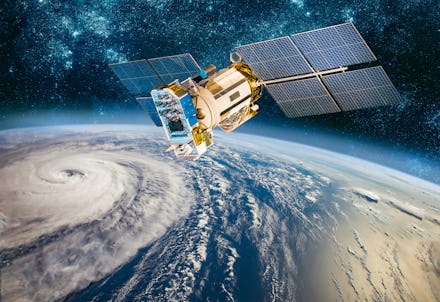This company just managed to "grow" meat...in space

In order for astronauts to eat in space, they have to rely on carefully packaged food. After all, there's currently no grocery stores or ways to grow your own fruits and veggies, but that may be changing. Recently, advances in lab-grown meat have come to the International Space Station and it may be a game changer.
Israeli food company Aleph Farms describes itself as "shaping the future of food by producing real meat cuts from cow cells" all without harming any animals or the environment itself. The company's space break-through seems like a big part of that mission.
On Monday, Aleph Farms tweeted, "In a joint experiment on #InternationalSpaceStation, we successfully produced #cultivatedmeat regardless to the availability of land and local water resources. This is one milestone towards promising sustainable food everywhere!"
At this point, you're probably wondering how the heck anybody can grow meat in space. Basically, researchers take cells from a cow and utilize 3D tissue engineering to mimic the natural process of muscle-tissue regeneration. Eventually, and if everything goes right, you end up with a full-sized steak.
"This joint experiment marks a significant first step toward achieving our vision to ensure food security for generations to come, while preserving our natural resources," Didier Toubia, co-founder and CEO of Aleph farms, said in a press release.
You may wonder why growing meat in space is necessary at all, but it can be a huge help in long-term manned space missions. In addition, 3D Bioprinting Solutions, a Russian company that collaborated with Aleph Farms on this project, noted that it could address food insecurity on Earth.
While beef remains popular, its mass production has high costs for the Earth. According to the United Nations, beef alone is responsible for the most livestock greenhouse gas emissions, contributing 41 percent of livestock emissions. There are also issues with cattle ranching and deforestation, especially in the Amazon region. The United Nations recommends improving animal and herd efficiency to cut down on greenhouse emissions, but advances in lab-cultivated meat could be a possible solution, too.
“Long-term manned space missions are bound to face unparalleled challenges with nutrition and the reutilization of all available organic resources," Aleksandr Ostrovsky, co-founder of 3D Bioprinting Solutions said. "What is more, creating cultured meat products in space may grant invaluable scientific insights for implementation of this technology on Earth."
Right now, space-grown meat isn't ready for people to start buying it. Aleph Farms hopes to have it commercially available within the next three to four years.